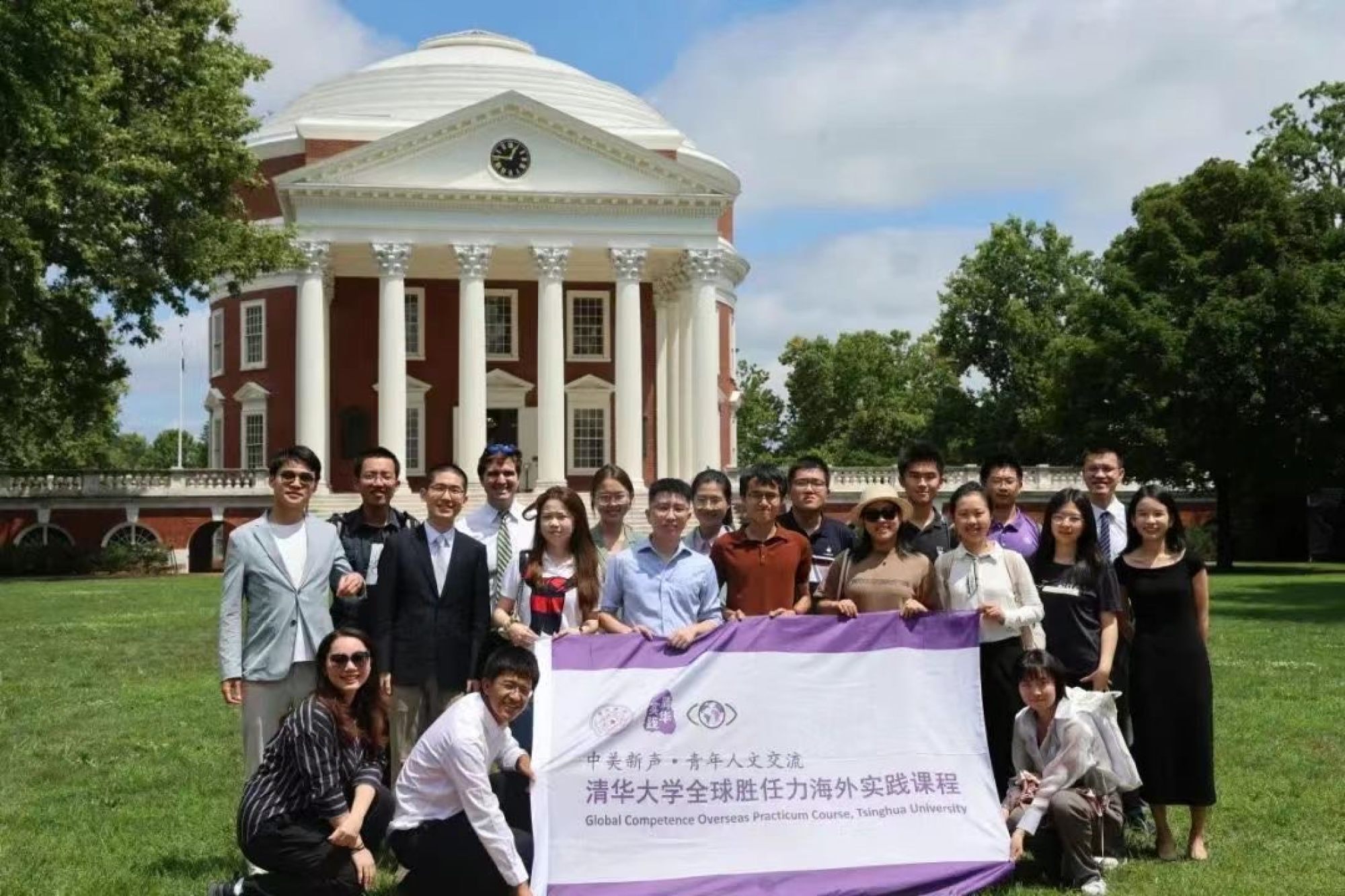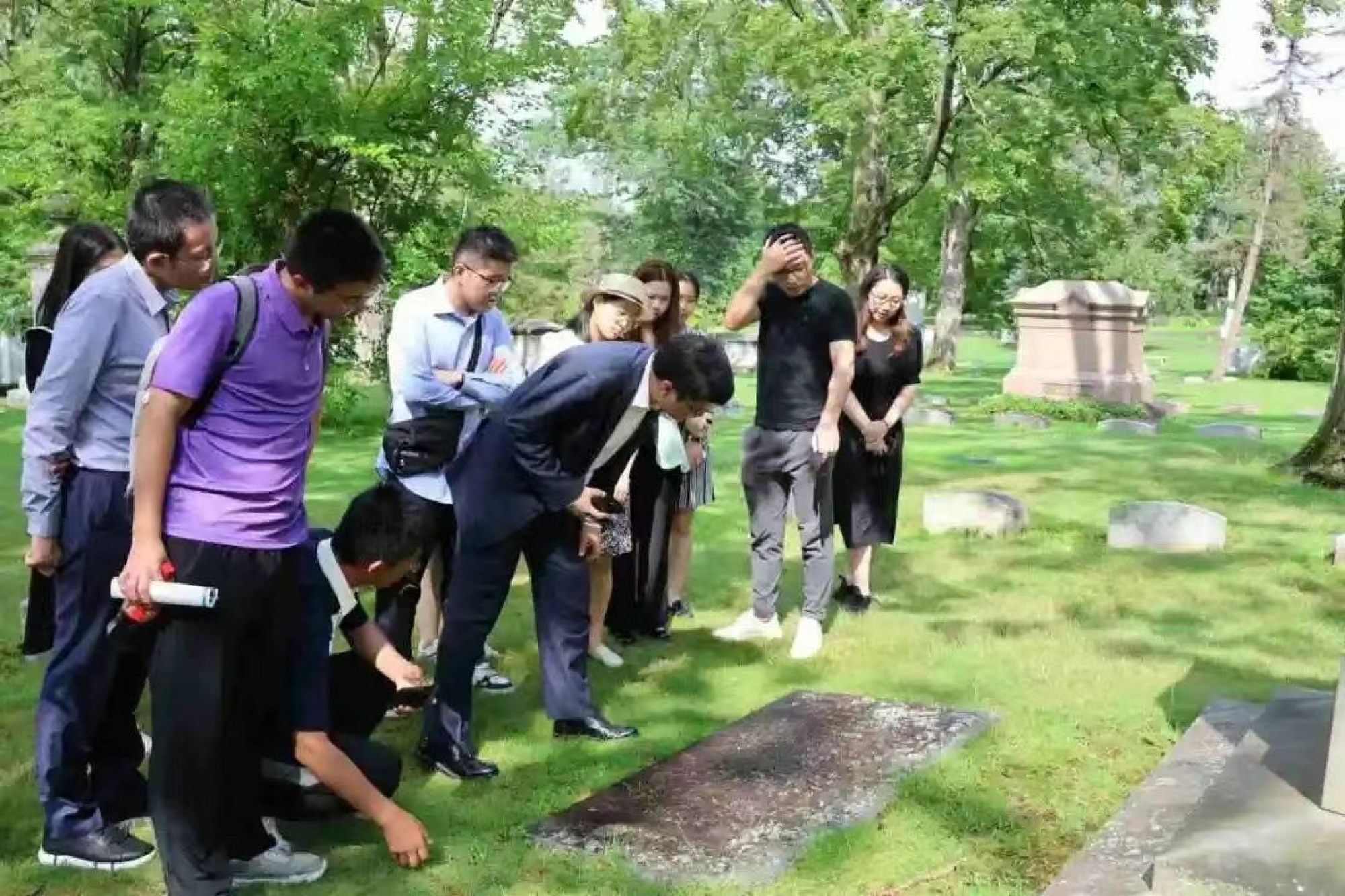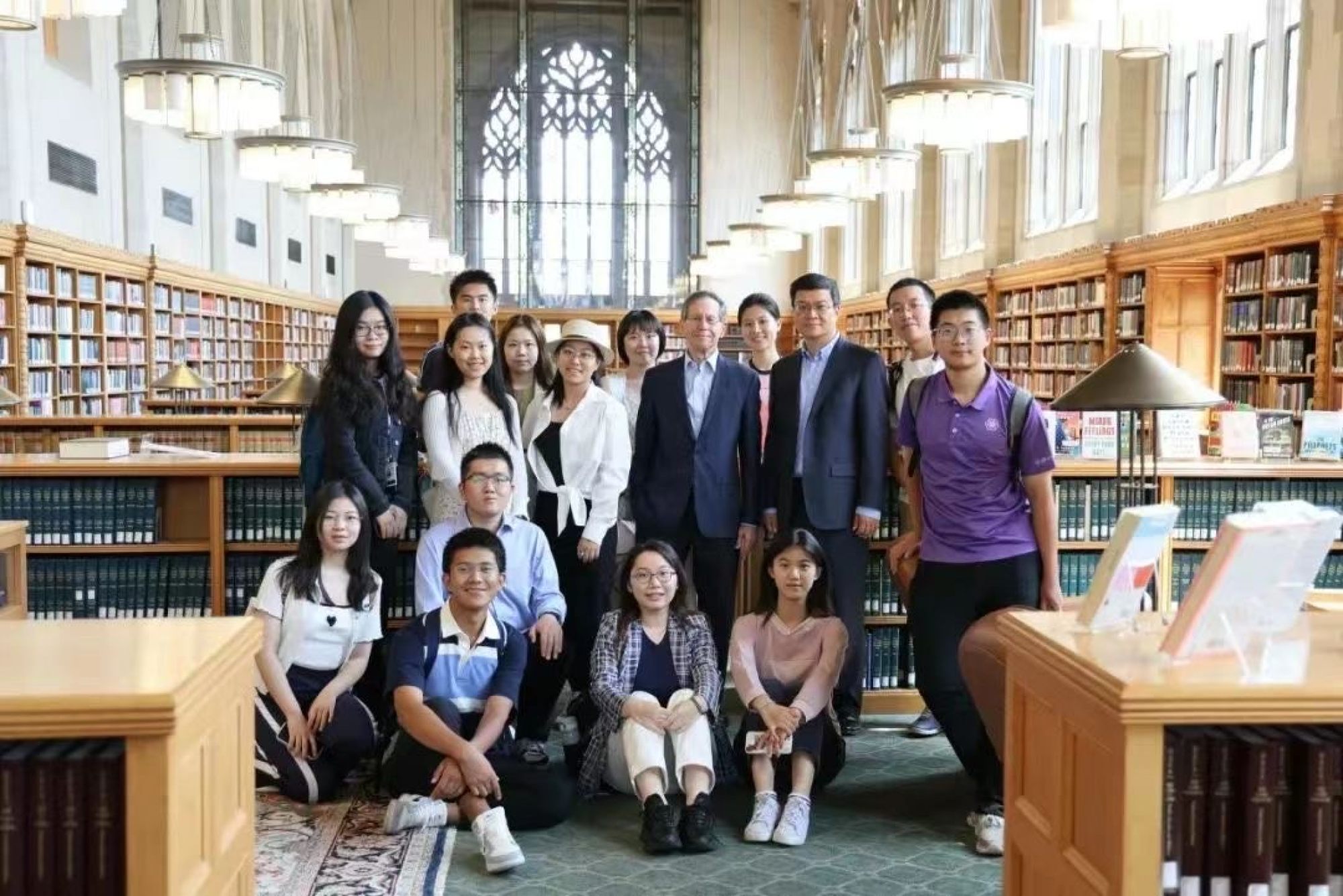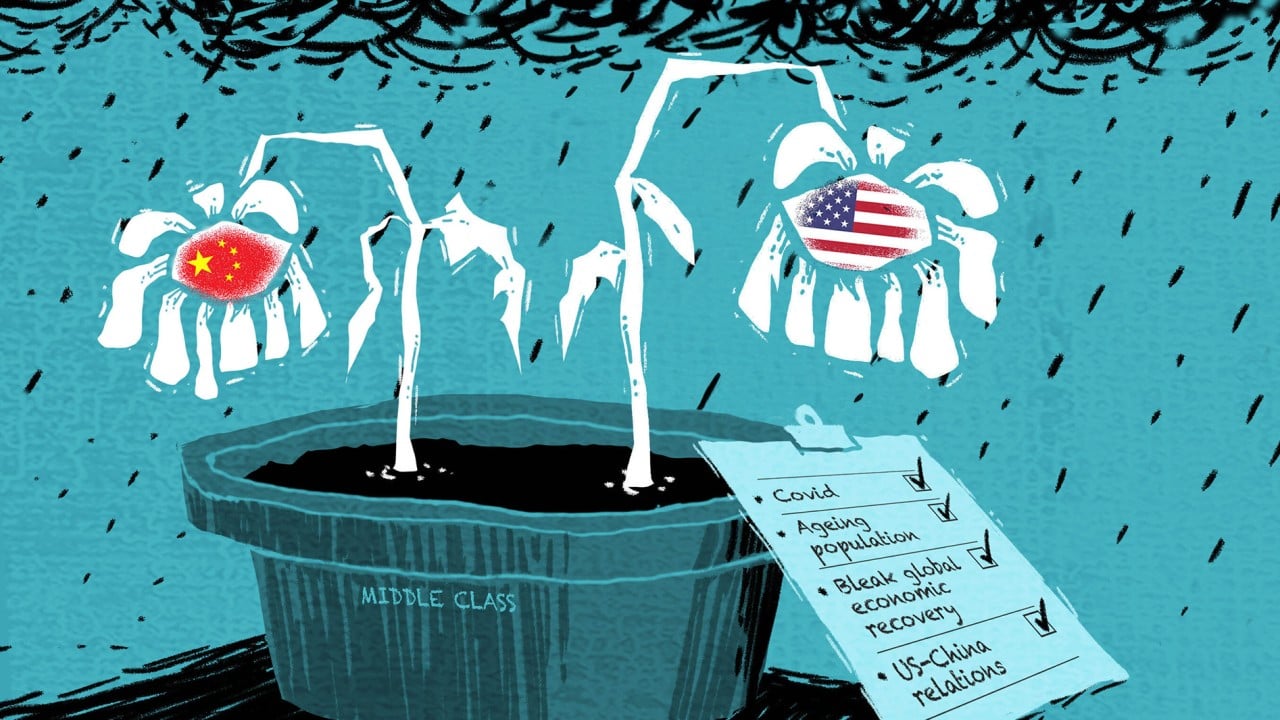
For bright young minds in China and US, curiosity and pragmatism outpace nationalism, distrust
- Interviews with students from top American and Chinese schools contradict assumptions about their views of the other nation and geopolitical ties
- After US trip, Tsinghua students express nuanced opinions, saying there is much China can learn from America and acknowledging shared concerns
Yang’s first day in the US did not go as planned. Upon landing, Yang and four of his classmates were stopped for secondary questioning by border security.
Yang, who asked to use a pseudonym to protect his privacy, was part of a group of 14 Chinese Tsinghua University students on a two-week trip to cultural institutions, universities and think tanks on the US East Coast this summer. The university-organised tour was the first post-pandemic trip of its kind, and for most of the students, their first journey to the US.
A recent graduate of Tsinghua’s quantum computing programme, Yang was held for three hours in what he described as a deeply uncomfortable experience.
Yet he says he left the US very hopeful for bilateral cooperation and does not rule out future study in the US.
Overall, while acknowledging that he had seen only a sliver of some of the country’s most cosmopolitan cities, he said he saw “a real United States” with “warm-hearted and passionate people” – a contrast to the negative images he and his classmates often see in the media.

Though there are hundreds of thousands of Chinese students currently in the US, the Tsinghua group represents those who have thus far chosen to stay in the Chinese system, and whose place at one of China’s most elite universities positions them to join the country’s future leaders.
Yang’s upbeat views were echoed by his classmates, who said the trip made them realise that there was much China could learn from America and that there were more areas of shared concern than they believed existed coming in.
While Yang and his classmates – who partly used their own funds to make the trip – may be among the young people in China most eager to engage with Americans, some research has found that they are not alone in holding nuanced and positive views of the US.
Survey of 30 years of Chinese students in US reflects pressures, satisfaction
A survey of 110 Chinese students at Tsinghua and Peking University conducted last year by Mallie Prytherch, then a student at Tsinghua’s Schwarzman College, found that students’ opinions of the US and US-China relations were relatively measured and defined more by pragmatism than nationalism.
“They clearly differentiate between the American government and the American people … Many expressed a sense of disillusionment with both the American dream and the Chinese government,” she wrote.
Chinese youth today are unique compared with previous generations as they have lived in a period of relative prosperity. They have witnessed China becoming increasingly prominent on the world stage, while also having more opportunity to travel and engage with Americans.

At the same time, they grew up at a time of increasing state control over the media and a greater push for ideological education. And many of them grew up without strong memories of US-China engagement characteristic of the years before Donald Trump was president.
In the same vein, a 2022 study from the Global Times, a nationalist Chinese tabloid, found that 54.6 per cent of Chinese youth looked down on the West, compared with 18.4 per cent in 2016, even as a “notable” portion called for more cultural exchange.
‘They want American degrees’: China No 1 provider of overseas students to US
Almost all respondents said that the US and China should cooperate on at least one policy priority, though some expressed scepticism on how possible that was.
The Tsinghua and Peking students mostly struck a middle ground between confidence in China and admiration for America, believing that Chinese people should neither look up or down on the United States, while also believing that China has surpassed the US in certain ways.
Still, the Tsinghua students who toured the US cited multiple areas where China could learn from the US’ example, ranging from holistic college education to preserving historical sites.
And there appeared still to be abundant curiosity about American culture.
“Many of my friends have a strong interest in American culture,” said Aaron Huang, a sophomore studying Chinese literature and political science. “We all watched the American movie Barbie, and I think we all loved it.”
What do Americans think of China, and why does social class matter?
Huang’s sentiment is echoed in Prytherch’s research. While respondents mostly had a negative view of the American government and saw their impressions of it decline since the start of the Covid-19 pandemic, they had a neutral to slightly positive view of American people.
At the same time, many believed Americans to be ignorant of China. When asked what was one thing they would tell Americans, many said: “Come to China. Learn about China. We are the same as you.”
Almost 11,270km (7,000 miles) away from Tsinghua’s campus, in New Haven, Connecticut, undergraduates at Yale’s China Hands magazine expressed a desire to hear directly from Chinese people.
“Students at Yale – at least in circles I communicate with – want to hear more from the Chinese perspective or the Taiwanese perspective … rather than hearing the same law professors rehash the same arguments,” said Aurelia Dochnal, a senior studying history and East Asian literature who served as the magazine’s chief editor last year.
“The general zeitgeist is wanting to know more and wanting to engage,” Dochnal added, noting that learning Chinese was popular on campus.
Matt Kirschner, China Hands’ current editor-in-chief, said part of his goal was to encourage cross-cultural dialogue to help people get beyond a “surface-level understanding” of China.
In an echo of his Chinese counterparts, Kirschner, a senior from Maryland studying economics and East Asian studies, said there was a lot that the US could learn from China.
“The US focuses a lot on what China does wrong, and they may do a lot of things wrong, but they also do a lot of things better than the US,” he said.
Student leaders in the nation’s capital are no different in questioning Washington’s confrontational consensus.
Tappy Lung, a senior from New York studying political communication and international affairs at George Washington University, said she found experts who come to speak on campus “sound just so much more hawkish” than her peers.
“When I listen to experts speak, there’s no question about whether or not the US should try to maintain its hegemony, and the US should try its best to compete against China so that it remains in the position that it is in,” said Lung, who expressed an interest in working on democratic governance after graduation.
“I don’t know if competing with China and outcompeting China is necessarily of critical interest to the United States.”

They are also less likely to call China an enemy and less critical of China’s international contributions.
According to Laura Silver at Pew, younger people tend to be more open to multilateral cooperation due to a recognition that certain problems are “global in nature and thus require global solutions”.
The great firewall: China and internet regulation
Dennis Wilder, a senior fellow at Georgetown University’s School of Foreign Service, which regularly sends graduates to the top echelons of the US government, said that while his students were “highly interested in their counterparts”, they were deterred from going to China by a slew of perceived obstacles. These include having to navigate China’s counter-espionage laws and its Great Firewall, which censors many Western websites.
According to Michael Szonyi, a Chinese history professor at Harvard, pressure is also being felt from the American side, particularly for students who want security clearances for US public service roles.
“Students are very troubled that they may be attacked by both sides, that they will be accused in the United States of being manipulated in the interest of China and that they’ll be misunderstood in China as being tools of the American government,” he said.
Szonyi also expressed concern over what he called the “securitisation of China studies” – the prioritisation of research directly helpful to developing coherent US policies on China over the study of China itself – which he says will lead to a drop in those willing to serve as interlocutors between the countries.
US ‘remains welcoming’ to Chinese students, 155,000 visas issued since last May
In-person engagement, it seems, matters. Of the 14 Tsinghua students who toured the US, eight reported more favourable impressions of the country after their trip, while two had worse impressions, and four had experiences in line with their expectations.
The question remains whether youth in either system can overcome potentially hostile institutional incentives once they enter the workforce.
As Prytherch explains, even if students’ personal opinions are geared towards neutrality, it is possible that they would be more nationalistic or anti-West in public.
Wilder of Georgetown is optimistic about the prospects. Exposure to another culture and language “makes a big difference in students’ world view,” he said. “They will bring something different to their government jobs as a result.”
Da Wei, an international relations professor at Tsinghua who led the student tour, thinks that pro-engagement attitudes may bear fruit in the long run, even if sidelined in the short term.
“Their positive view will still be there as a kind of seed,” he said. “Maybe one day when the environment is better it can grow.”


